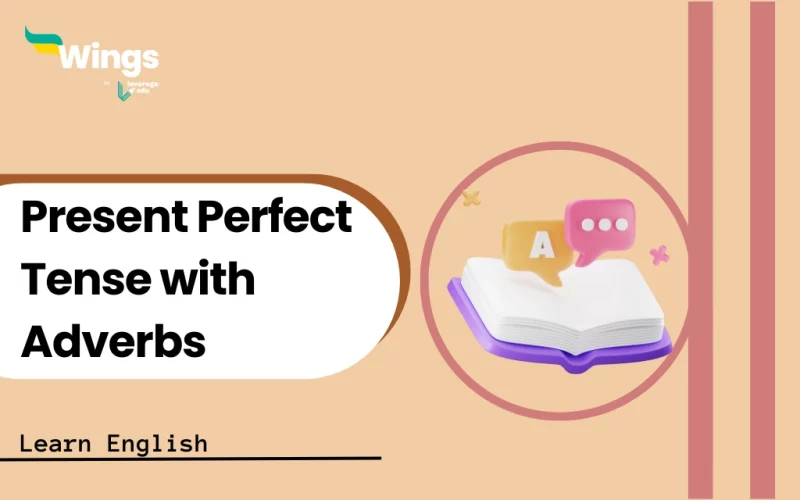In English Language, the Present Perfect tense is used to talk about actions that happened at an unspecified time or actions that have just finished. It is formed by using “have” or “has” followed by the past participle of the main verb. Adverbs such as “already”, “just”, and “yet” are generally used with present perfect tense to express the timing of the action. In this blog, you will learn about present perfect with adverbs of frequency and time with exercises and examples.
This Blog Includes:
Present Perfect with Adverbs of Frequency
The adverbs which are yet, already, just, recently, lately, ever and never are generally used in present perfect sentences to depict the regularity or continuity of an act or activity.
It can be formed by using the Subject + Auxiliary verb have/has + Participle form of the verb + Complement + Adverb = Present perfect
Present Perfect with Adverbs of Time
The present perfect tense is generally utilised with indefinite adverbs. Such as just, never, ever, never, since, for, before, yet, already.
Adverbs of Time Used with Present Perfect Tense
- Just – Refer to events that just happened
Example: Are you starving? – No, I’ve just had lunch.
Is Richard here? – No, I’m afraid he’s just gone out.
- Already – An action that has occurred at an unknown time before now. It means that there is no requirement for repetition. Can be set before the main verb (past participle) or at the end of the sentence.
Example: What time does the show start? – It has already begun.
What time does the film start? – It has started already.
- Yet – It refers to events that have happened up to now
Example: She hasn’t reached yet.
Has he eaten the grapes yet?
- For – It talks about a span or duration of time. Does not own to be an exact number, but it must refer to a time.
Example: She has lived in Canada for a long time.
They’re going to Amsterdam for the weekend.
- Since – It refers to a particular point in time.
Example: They have lived here since 2009.
She has been walking since 4 p.m.

Also read: Present Perfect Continuous Tense Examples
Present Perfect with Adverbs Exercise
Instruction: Below are sentences with blanks to fill in with the accurate present perfect tense verb form and an adverb:
- He _______ (not see) Amisha ___(all day).
- They _______ (already) _______ (eat) breakfast.
- He _______ (never) _______ (been) to America.
- _______ (Have) you _______ (finished) your holiday homework _______ (yet)?
- We _______ (just) _______ (arrive).
- He _______ (always) _______ (wanted) to learn how to play the sitar.
- _______ (We) _______ (not) _______ (decided) where to go on holiday.
- She _______ (already) _______ (apologized) for his mistake.
- _______ (They) _______ (ever) _______ (met) a famous personality?
- _______ (I) _______ (been) waiting for the cab for over an hour!
Answers
- He hasn’t seen Amisha all day.
- They have already eaten breakfast.
- He has never been to America.
- Have you finished your holiday homework yet?
- We have just arrived.
- He has always wanted to learn how to play the sitar.
- We haven’t decided where to go on holiday.
- She has already apologized for his mistake.
- Have they ever met a famous personality?
- I have been waiting for the cab for over an hour!
Read more: Adverb of Time: Explore Meaning, Usage & Examples
Related Reads
FAQs
The present perfect refers to an action that occurred at an unspecified time in the past, sentences. Words such as: “ever,” “never,” “once,” and “so far”. Examples: Richard has never lived in America.
Adverbs of frequency utilised with the present perfect which are: ever, never, rarely, and always. Other adverbs of frequency (often, sometimes, usually, commonly) are commonly used in the present simple or the past simple tense.
In a perfect manner or to a perfect degree: to sing an aria perfectly. completely; fully; and adequately: This will suit your purpose.
This was all about the relative adverbs examples in English grammar. Hope you understand the concept and know how to proceed. You can also follow the page of Leverage Edu for more exciting and informative blogs.
 One app for all your study abroad needs
One app for all your study abroad needs














 45,000+ students realised their study abroad dream with us. Take the first step today.
45,000+ students realised their study abroad dream with us. Take the first step today.

